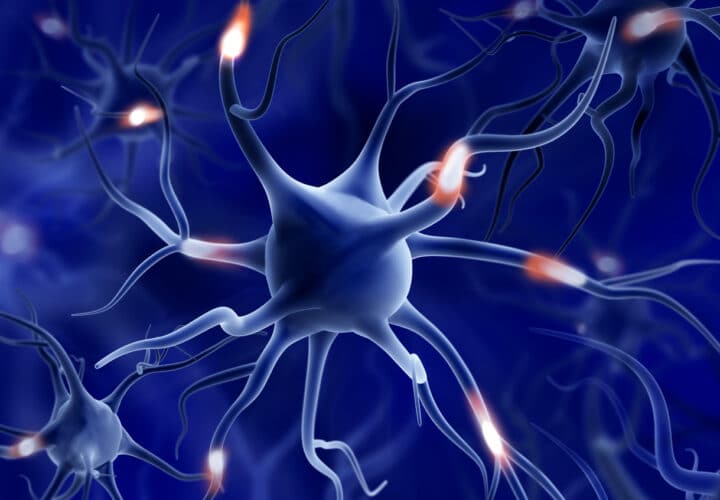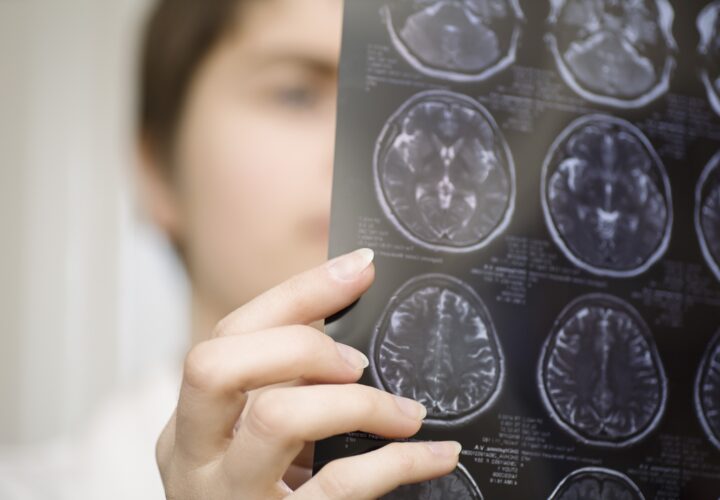The long search for a drug to slow the decline of Alzheimer’s may have reached a turning point. Pharmaceutical companies Biogen and Eisai have revealed the much-anticipated results of a trial they hinted at earlier this month. The trial shows that patients in the early stages of Alzheimer’s who were given the highest doses of the drug for 18 months performed 30 percent better on cognitive tests than those who got a placebo.
The data was presented at the Alzheimer’s Association International Conference on Wednesday. The drug, called BAN2401, is an anti-amyloid drug, aimed at reducing the amount of beta-amyloid plaques, the sticky protein that accumulates in the brains of Alzheimer’s patients. Anti-amyloid drugs have had a high failure rate in the past—to the point that many scientists started question the theory that amyloid is behind Alzheimer’s altogether.
[embedyt] https://www.youtube.com/watch?v=8BNjdMKqXGM[/embedyt]
This trial is significant because not only did it reduce the plaques; it also slowed the rate of cognitive decline. In the past, drugs that were able to clear the amyloid did not have the same effect on cognition and memory.
It’s encouraging news—the type that might convince the drug makers to seek early approval with the FDA. But there are some caveats. Only the highest dose of BAN2401 worked. The other four doses failed to outperform the placebo. As such, the successful dose was tested on only 161 people, which makes the statistics weaker and less meaningful. And the metric used to measure cognitive performance was created in-house, and it is not one that has ever been used to win FDA approval.
Patients in the highest dosage use were also the least likely to carry the gene ApoE4, a genetic variation that predisposes people to the disease. In previous studies, people with ApoE4 were more likely to develop brain swelling, and regulators wanted to avoid that. The disparity in genetics could also have skewed why the highest-dose group seemed to respond better to the medication. Seventy-one percent of the placebo patients were ApoE4 positive, versus 30 percent in the highest-dose group.
There are currently no drugs that treat Alzheimer’s at its root—only drugs that address the symptoms of memory decline. Even those don’t work for everyone, and may only work for a few months, according to experts.
Biogen’s stock soared after the initial announcement earlier this month, but dropped more than 8 percent after the announcement yesterday. Eisai, a Japanese company, fell about ten percent in Tokyo.
This trial was a Phase 2, and still needs to go through a Phase 3 trial. Successful Phase 2 trials have gone on to fail in Phase 3 in the past, but researchers are cautiously optimistic.
“It’s been 15 years since the last dementia drug treatment was developed, so any breakthrough in finding a new way to tackle this devastating condition is extremely welcome,” said Alzheimer’s Society Chief Policy and Research Officer Doug Brown.
If anything, this trial provides renewed hope for those who were starting to doubt the amyloid hypothesis.
“To set the context, recent failed drug trials have suggested targeting amyloid may not be the right approach to slow or stop Alzheimer’s disease – but this study’s results could challenge that, demonstrating instead some reduction of cognitive decline with high doses of this drug. It is only the second such drug trial that offers hope that this approach is worth pursuing,” said Brown.
The drug needs to go through more studies in order to replicate the findings. But in a field marked by failure, even a glimmer of success is exhilarating.




I have been seriously injured by benzodiazapine use, which, when I was prescribed in 1990 was deemed safe. It turned out the medical profession already knew that was not true. Many people are now injured – soooo no more drugs for me, especially ones that the FDA approves in a rush….if the Ativan I took increased my risk for alzheimers, then suicide would be my only option…I will never be poisoned by drugs again